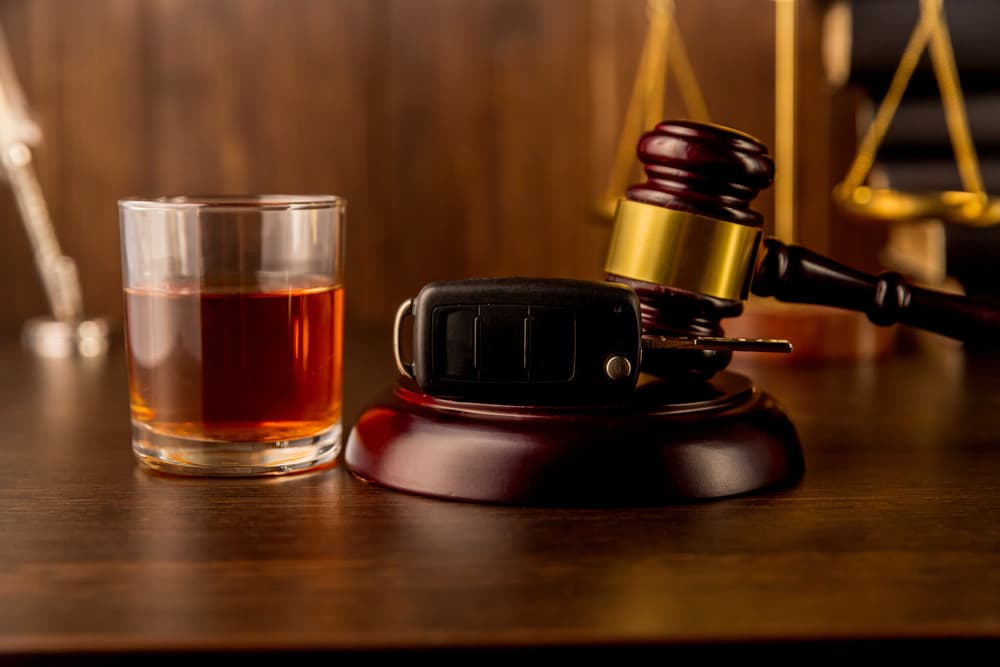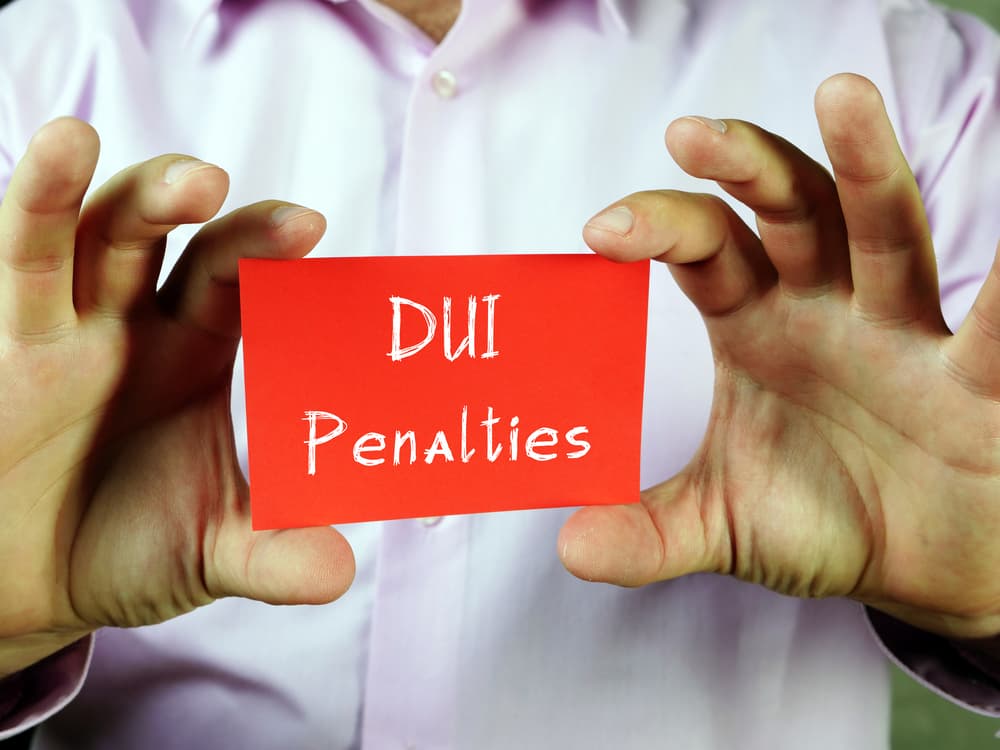Facing a DUI is difficult, but you have options. One of the most common questions people ask is whether a DUI can be downgraded to a lesser charge. The answer is that it depends on the circumstances.
DUI laws are different in different jurisdictions. Contact a DUI lawyer in your locale to ensure you realize the best outcome for your case. A DUI defense attorney can support you in various ways and explain the legal process to you.
Schedule Your Free Consultation
What is a DUI?

Before we get into reducing a charge for a DUI, we need to define the offense. Prosecutors typically charge a DUI, or driving under the influence, when you allegedly drive a vehicle with a blood alcohol concentration (BAC) of 0.08 percent or above, or when alcohol or drugs impair you.
Impairment
Even if your BAC does not reach the legal limit, authorities can still charge you with a DUI. They may base this on your driving behavior, performance on standardized field sobriety tests (SFTs), and observations of your physical condition.
Zero Tolerance
Many states, such as Arizona and North Carolina, have implemented a "zero tolerance" policy for drivers under 21. This stringent policy means that if any trace of alcohol or drugs is detected in a young driver's system, they can face DUI (driving under the influence) charges.
Grossly Aggravating Factors
Certain factors can elevate the severity of a DUI charge.
Grossly aggravating factors typically include:
- A BAC of 0.15 or higher
- Reckless driving
- Driving on a suspended license
- Excessive speed while driving under the influence
- DUI with a child in the car
In states like North Carolina, the penalties escalate significantly when three or more of these grossly aggravating factors are present within a seven-year period. The driver may face fines of up to $4,000 and a mandatory minimum of 12 months in jail. Moreover, the court cannot suspend the jail sentence.
License Suspension and Implied Consent
The DMV may revoke the driver’s license of anyone convicted of DUI. Also, it’s essential to understand the law of implied consent for DUI testing. This law means you agree to chemical testing (e.g., Breathalyzer and blood testing) if you’re suspected of DUI. Refusing the test can result in an automatic license suspension.
Other Important Considerations
- BAC for Commercial Vehicles: The legal BAC limit for driving a commercial vehicle is 0.04 percent, lower than the 0.08 percent limit for non-commercial vehicles.
- Drugs and DWI: Driving under the influence of any illegal substance automatically constitutes a DUI.
- Prescription Drugs and DWI: Even if you have a valid prescription, driving while impaired by prescription drugs can still lead to a DUI charge.
Violations of complicated DUI laws can have serious consequences. If you face DUI charges, consult an experienced DUI defense attorney who can explain the legal process and protect your rights.
Consequences of a DUI Conviction

A DUI conviction can have serious consequences that impact many areas of your life.
These consequences may include:
- Jail time: Depending on the severity of the offense and prior convictions, you might potentially go to jail.
- Fines: Substantial fines are often imposed for DUIs.
- Driver’s license suspension: Your driver’s license may be suspended or revoked, making it hard to get to work or handle daily tasks.
- Insurance rates: Your insurance rates will skyrocket after a DUI.
- Criminal record: A DUI will remain on your criminal record, affecting future job opportunities, housing applications, and other areas of your life.
- Alcohol education or treatment: You may be required to take alcohol education classes or treatment programs.
- Ignition interlock device: You may need to install an IID to prevent your vehicle from starting if you’ve been drinking.
Potentially Downgrading a DUI to a Lesser Charge
While a DUI is severe, prosecutors can downgrade it to a lesser charge in some cases. The possibility of reducing a charge depends on the facts of your case, the strength of the evidence against you, and your lawyer’s negotiation skills.
Lesser Charges
Some standard lesser charges for a DUI include:
- Reckless driving: This driving charge involves endangering people or property. It’s a less serious charge than a DUI.
- Impaired driving: This charge applies if there’s evidence of some impairment but not enough to meet the legal threshold for a DUI.
- Careless and imprudent driving is a less serious traffic violation and involves driving without due care and attention.
Careless and imprudent driving is different from reckless driving, as it involves unintentional negligence, while reckless driving involves a wanton or willful disregard for people’s safety.
For instance, running a red light or forgetting to use a turn signal may be cited as careless and imprudent driving. Common examples of reckless driving include excessive speeding, running a stop sign, street racing, or texting while driving.
Factors That May Contribute to a Reduced Sentence
Several factors can contribute to a reduced DUI charge.
These may include:
- BAC level: If your BAC level is slightly above the legal limit, it may be easier to negotiate a plea deal.
- No prior offenses: If you have no DUI convictions or other criminal history, the prosecutor may be more open to reducing the charge.
- Evidence issues: If the evidence is weak, such as problems with the Breathalyzer test or the legality of the traffic stop, it may be possible to negotiate.
- The prosecutor may view your cooperation with law enforcement favorably.
- Acceptance of responsibility: If you show remorse and a willingness to address any underlying issues with alcohol or substance abuse, it may increase the chances of a downgrade.
How a DUI Defense Lawyer Can Help
Here’s how a DUI lawyer can help you:
Case Review
A DUI lawyer will review your case, looking at all the evidence against you, including police reports, Breathalyzer results, and witness statements. They will identify weaknesses in the prosecution’s case and assess the available defenses.
Your lawyer will advise and guide you throughout the process. They’ll explain your rights, the consequences of a conviction, and the possible outcomes of your case. They’ll also ensure you understand your options so you can make a more informed decision.
Negotiation with the Prosecutor
A DUI lawyer’s primary role is to negotiate with the prosecutor. They’ll work to get a plea bargain that downgrades the DUI charge or reduces the penalties. They’ll use their knowledge of the law and negotiation skills to advocate on your behalf.
Challenging Evidence
Your lawyer will challenge the evidence against you, looking for flaws and inconsistencies. If they can challenge the evidence successfully, it may weaken the prosecution’s case and increase the chances of a reduction or dismissal.
Court Representation
If your case goes to trial, your lawyer will represent you. They’ll present your defense, cross-examine witnesses, and argue on your behalf. They’ll protect your due process and other rights.
Mitigation of Penalties
Even if reducing the charge isn’t possible, your lawyer can still work to mitigate the penalties. They may present mitigating factors to the judge, such as willingness to undergo rehabilitation.
Understanding the Process
A DUI lawyer will guide you through every step of the complicated and overwhelming process, explain what to expect, and answer any questions. They’ll explain your rights and options and prepare you for each stage of your case.
Protecting Your Rights
Again, your DUI lawyer will work hard to protect your rights throughout the process. They’ll make sure the police followed proper procedures during your arrest, and your constitutional rights weren’t violated. They’ll also challenge any illegal or improper actions by the prosecution.
Long-Term Consequences
A DUI lawyer will help you understand the long-term consequences of a DUI and work to minimize the impact on your future. They’ll advise you on challenges - such as a driver’s license suspension, higher insurance rates, and a criminal record.
Speak to a DUI Defense Lawyer Now
A good DUI lawyer can be your best asset in this process. They’ll review your case, give you legal advice, negotiate with the prosecutor, and represent you with commitment. Legal representation will increase your chances of getting the best outcome in your DUI case.
Consult a criminal defense lawyer in Carteret County, NC to discuss your case and get personalized advice. Call a DUI lawyer now.